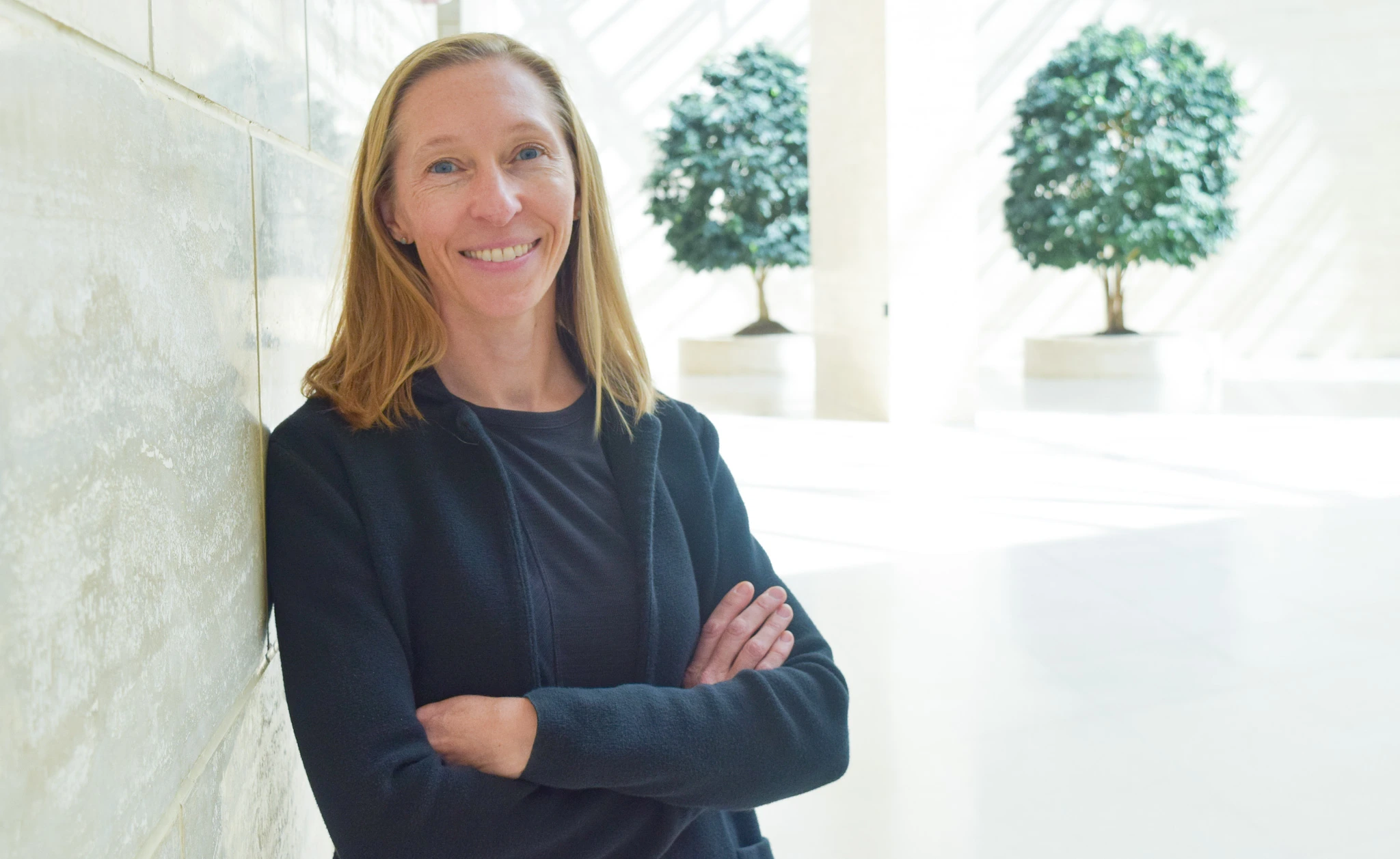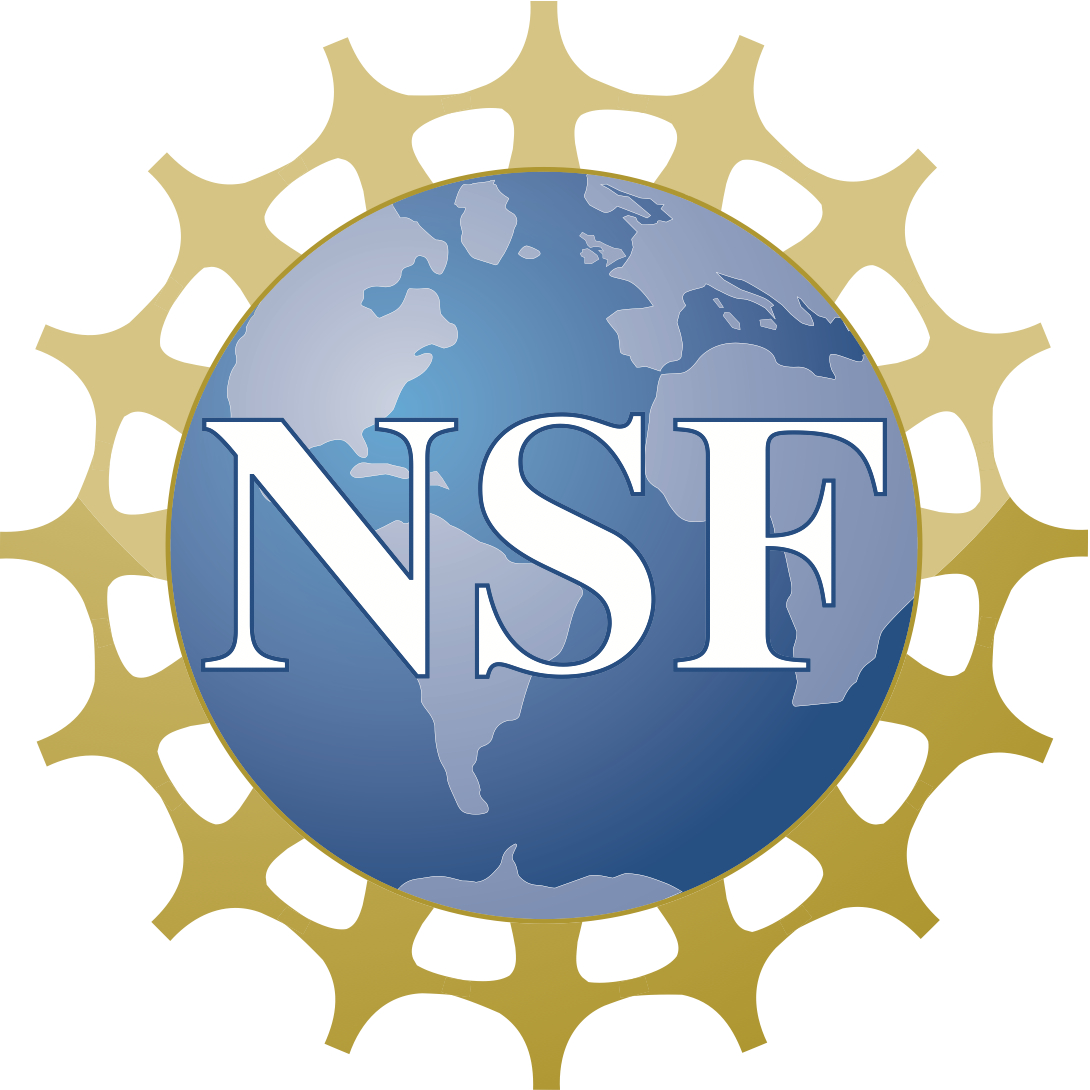WEBB LAB
Lab focus
Aging is the major risk factor for a number of diseases, including neurodegenerative diseases such as Alzheimer’s. Yet, our understanding of the mechanisms responsible for aging at the molecular level remains limited. Identifying the factors that accelerate the aging process, as well as those that confer resilience, will influence quality of life in the elderly and lead to treatments for age-associated diseases.
The Webb lab investigates the transcriptional and epigenetic mechanisms of brain aging and neurodegeneration. Our lab has a long-standing interest in the mechanisms of adult hippocampal neurogenesis – the process of new neuron formation in the adult brain – and why neural stem cells fail to regenerate neurons in the aging brain. Our lab has identified transcriptional and epigenetic changes linked to impaired proteostasis and metabolism in aged neural stem cells. Our recent work implicates similar mechanisms as responsible for defective neurogenesis in Alzheimer’s models as well. In a newer direction in the lab, we are studying the mechanisms of hypothalamic aging. The hypothalamus is a well-conserved brain region that controls homeostatic and survival-related behaviors such as sleep, circadian rhythms, metabolic homeostasis, reproduction, and hormone status. We have identified cell-type specific transcriptional changes with age associated with these processes and discovered sex-specific features of the aging hypothalamus. Collectively, in the long term, this work may lead to new strategies to enhance healthy brain function in the context of aging and neurodegeneration.
Why it matters
During aging, molecular changes in the brain result in cognitive decline, sleep dysfunction, and metabolic deregulation. These impairments are even further exacerbated in individuals living with neurodegeneration. Our goal of understanding the molecular basis for brain aging has the potential to lead to new treatments to combat cognitive decline and improve daily life in older adults.
CENTER DETAILS
Dr. Webb received her PhD from the University of Washington and did her postdoctoral work with Dr. Anne Brunet at Stanford University. She started her laboratory at Brown University, where she was promoted to Associate Professor with tenure and became the Associate Director of the Center on the Biology of Aging. Dr. Webb joined the Buck Faculty as an Associate Professor in 2023.
Dr. Webb has received awards for her work in the aging field, including a Glenn Award for Research on Mechanisms of Aging, and a junior faculty award from the American Federation for Aging Research. Her lab is funded by the NIH National Institute on Aging and the National Science Foundation. Dr. Webb is a member of the AFAR National Advisory Council and the Board of Directors for the American Aging Association. She serves as reviewer for the Glenn Foundation and is a member of the NIH’s Cellular Mechanisms of Aging and Development study section.
-
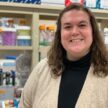 Kelsey Babcock Brown University, Neuroscience graduate student
Kelsey Babcock Brown University, Neuroscience graduate studentKelsey Babcock is a neuroscience PhD candidate who joined the Webb Lab at Brown University. She received her bachelor’s degree in neuroscience from Wheaton College MA in 2016 and worked in Dr. Ian Wickersham’s Genetic Neuroengineering Group at MIT before pursuing graduate school. Kelsey’s research focuses on understanding the molecular mechanisms underlying the loss of neurogenesis in the context of Alzheimer’s disease. She utilizes in vivo approaches alongside molecular biology and genomics techniques to elucidate defects in hippocampal neural stem cells in mouse models of Alzheimer’s disease. The overarching goal of Kelsey’s research is to identify targets to improve neurogenesis and alleviate cognitive symptoms in the Alzheimer’s mouse model. Outside of the lab, Kelsey enjoys hiking, camping, and trying new recipes.
-
 Misaki Belser USC Student
Misaki Belser USC StudentMBelser@buckinstitute.org
-
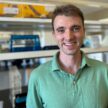 Harry Bevir Lab Manager
Harry Bevir Lab ManagerHarry Bevir completed his B.S. at UC Davis. He studied the role of neurotransmitter receptor subunits in synaptic specificity at UCLA before completing his M.S. at Cal State LA. His thesis examines dynamic patterns of subcellular localization of circadian proteins in cyanobacteria. Harry is currently interested in exploring the mechanisms of circadian disruption in neurodegenerative disease and aging models. Outside of the lab Harry enjoys hiking and backpacking in local parks and the Sierra Nevada and playing tabletop board and roleplaying games.
HBevir@buckinstitute.org
-
 Catherine Cai USC Student
Catherine Cai USC StudentCCai@buckinstitute.org
-
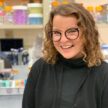 Adele Finch Brown University, Neuroscience graduate student
Adele Finch Brown University, Neuroscience graduate studentAdele Finch is a neuroscience PhD candidate at Brown University, and is currently a visiting student at The Buck Institute in the Webb Lab. She completed her B.A. in biology at Bard College in May of 2020. She is primarily interested in the molecular mechanisms that underlie the decline in hippocampal neurogenesis that occurs with age. Specifically, she is studying how mitochondrial turnover influences neural stem cells with the goal of identifying new targets for enhancing neurogenesis in the aged brain. When Adele isn’t at the bench, she enjoys learning how to play new musical instruments, knitting oversized sweaters, and hanging out with her cat, Vanya.
AFinch@buckinstitut.org
-
 Kaitlyn Hajdarovic, PhD Postdoctoral Associate
Kaitlyn Hajdarovic, PhD Postdoctoral AssociateDr. Kaitlyn Hajdarovic is a postdoctoral researcher in the Webb Laboratory. She is interested in the cellular and molecular mechanisms underlying decline in the hypothalamus. Her long term goal is to understand how hypothalamic energy- balance circuits can be manipulated to enhance lifespan and healthspan. Currently, she is working to model aged hypothalamic neurons in vitro. When not in lab, she enjoys embroidery and hanging out with her two cats.
-
 Angelina Holcom, PhD Postdoctoral Associate
Angelina Holcom, PhD Postdoctoral AssociateDr. Angelina Holcom is a postdoctoral researcher in the Webb lab. She received her doctoral degree from USC while working in the lab of Dr. Gordon Lithgow, where she studied Alzheimer's disease using C. elegans. She is currently interested in understanding the role of mitophagy in neural stem cells and conducting a high-throughput screen to identify modulators of mitophagy in NSCs. Outside the lab, Angelina enjoys baking and going to the beach.
AHolcom@buckinstitute.org
-
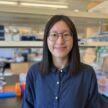 Doudou Yu Brown University, MCB graduate student
Doudou Yu Brown University, MCB graduate studentDoudou Yu is a MCB PhD candidate at Brown University, and is currently a visiting student at The Buck Institute in the Webb Lab. She is interested in understanding how the hypothalamus changes in brain aging and Alzheimer's disease. She uses single-cell ‘omics and computational approaches to characterize these biological trajectories. Outside of the lab, Doudou enjoys running and exploring various kinds of restaurants and foods.
DYu@buckinstitute.org
Selected Publications
-
Yu D, Li M, Linghu G, Hu Y, Hajdarovic K, Wang A, Singh R, Webb A. CellBiAge: Improved single-cell age classification using data binarization. Cell Reports, 2023.
-
Hajdarovic KH, Yu D, Webb AE. Understanding the aging hypothalamus, one cell at a time. Trends Neurosci, 2022. Dec; 45(12): 945-954.
-
*Hajdarovic KH, *Yu D, Hassell L, Evans SA, Packer S, Neretti N, Webb AE. Single-cell analysis of the aging female mouse hypothalamus. Nature Aging, 2022. Jul 4; 2(7): 662-678. *Equal contribution.
-
Maybury-Lewis SY, Brown AK, Yeary M, Sloutskin A, Dhakal S, McCarthy-Sinclair B, Juven-Gershon T, Webb AE. Changing and stable chromatin accessibility supports transcriptional overhaul during neural stem cell activation and is altered with age. Aging Cell, 2021 Oct 23:313499.
-
Babcock KR, Page JS, Fallon JR, Webb AE. Adult hippocampal neurogenesis in aging and Alzheimer’s disease. Stem Cell Rep. 2021 Feb 25.
-
Audesse AJ, Dhakal S, Hassell L-A, Gardell Z, Nemstova Y, Webb AE. FOXO3 directly regulates an autophagy network to functionally regulate proteostasis in adult neural stem cells. Plos Genetics. 2019 Apr 11;15(4):e1008097.
-
Brown AK and Webb AE. Regulation of FOXO factors in mammalian cells. Current Topics in Developmental Biology. 2018;127:165-192.
-
Webb AE, Kundaje AK, Brunet A. Characterization of the direct targets of FOXO transcription factors throughout evolution. Aging Cell. 2016; Aug;15(4):673-85.
Dr. Webb’s full publication list
